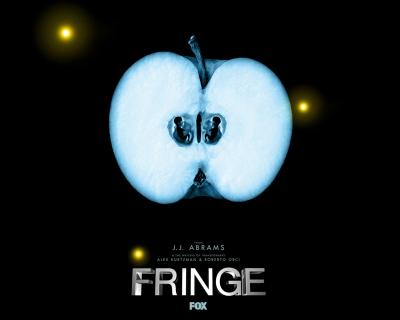Bocadillo, café y Fringe

Me gusta mucho la serie de televisión Fringe.
Sus creadores –y pienso en sus guionistas, directores y realizadores- logran crear una oferta narrativa realmente interesante. Ponen en el televisor un material comprensible y coherentemente armado, para contarnos historias que se anudan en nuestras experiencias más profundas: aquellas que preguntan sobre el qué, cómo, por qué estamos en el planeta Tierra. ¿Hacia dónde vamos, de dónde venimos? Al mismo tiempo, la propuesta se articula con las varias dimensiones extremadamente disímiles de nuestra realidad planetaria y que conviven sin estorbarse: por ejemplo, la tecnología de mega punta, la globalización y los intereses que las sostienen, con la extrema pobreza o la ignorancia ramplona de ciudadanos que quedan como infantes desposeídos, en el primer mundo. Así mismo, recoge con fina hebra los mitos ancestrales del ser humano, pero manifiestos en su tesitura urbana de última generación.
Otro acierto de la serie es que no es predecible, en el sentido de que las soluciones a los conflictos presentados están efectivamente entramadas en la historia, es decir, no se sacan de la manga, y pertenecen a una planteamiento narrativo mayor, al proyecto entero. Y los héroes mueren, quedan heridos y sanan lentamente, por ejemplo. O son falibles, lo que hace que nosotros los espectadores creamos más en la propuesta y nos atraiga casi imperceptiblemente. Fringe muestra cómo un material de calidad y con algo que decir, nunca desestima la inteligencia de su público.
Telequinesis, modificación genética, lectura del inconsciente, teletransportación, viajes astrales, mundos paralelos, superpoderes humanos, extraterrestres... todo, al alcance de la mano, metido en la vida cotidiana de los que habitamos este planeta. Un planteamiento interesante, que acerca el misterio de la existencia a los televidentes y que hace explícito este misterio en nuestras propias vidas. Despierta las preguntas y abre las respuestas.
Con riesgo a equivocarme porque tele veo muy poca, me parece una serie inusitada en los últimos tiempos de la televisión norteamericana. Me recordó a Tieta De Agreste, una telenovela brasileña casi censurada en México que pasó entre 1992 y 1993, basada en una novela de Jorge Amado, tupida de contenido y significado, dio a las televisoras mexicanas comerciales, carne para 20 años... y sigue dando.
En Fringe, un elenco de primera, da vida y veracidad a capítulos sobre temas que lindan entre lo fantástico y los resultados de la real ciencia de vanguardia. Ni qué decir de los efectos especiales y demás parafernalias de las que no se abusa, sino que dan brillantez a la historia.
Un saludable bocadillo con exquisito café... mmm, y les espera una entretenida tarde de descanso.
Marcela Chacón
Febrero, 2011
Fringe, conocida como Ciencia al límite en Hispanoamérica,
Fringe: La Gran Conspiración, en Latinoamérica y Fringe: al límite, en España.
Co-creada por J. J. Abrams, Alex Kurtzman y Roberto Orci. Fox, 2008.
(English version)
I like to watch the TV series Fringe.
Its creators, and I think its writers, directors and producers, were able to create an offer really interesting narrative. Put on the TV a comprehensive and consistently reinforced material, the serie tells stories that are tied to our deepest experiences: those who ask about what, how, why we are on planet Earth. Where are we going, where we come? At the same time, the proposal is structured with various dimensions very dissimilar planetary reality that coexists without disturbing: for example, the mega technology, globalization and the interests that support them, with extreme poverty or ignorance of popular citizens that grown like adult infants in the first world. It also includes thin thread with ancient myths present in the human being, but manifested in his ultimate urban generation.
Another success of the series, it is not predictable in the sense that solutions to the conflicts presented, are effectively woven into the story and belong to a more extensive narrative project, to the whole story. And heroes die, are injured and heal slowly, for example. Or are fallible, which makes us believe in the proposal, and we attract nearly impersceptiblemente. Fringes shows how a good material and with something to say, he never dismisses the intelligence of his audience.
Telekinesis, genetic modification, reading of the unconscious, teleportation, astral travel, parallel worlds, human superpowers, aliens ... However, to reach, involved in the daily lives of those who inhabit this planet. An interesting approach, which brings the mystery of existence to the viewers and makes explicit this mystery in our own lives. Wake up.
At the risk of being wrong because I see very little TV, I think it is unprecedented in recent times on American television. It reminded me Tieta of Agreste, a Brazilian telenovela in Mexico almost censored between 1992 and 1993, based on a novel by Jorge Amado, dense content and meaning, gave the Mexican and commercial television, meat for 20 years ... and never ends.
In Fringe, a cast of first gives give life and credence to its chapters on issues that border between the fantastic and the results of cutting-edge science. Not to mention the special effects and other paraphernalia which is not extra used, but give brilliance to the story.
A rich delicious healthy snack with coffee ... mmm, and I expect an entertaining evening of rest.
0 comentarios